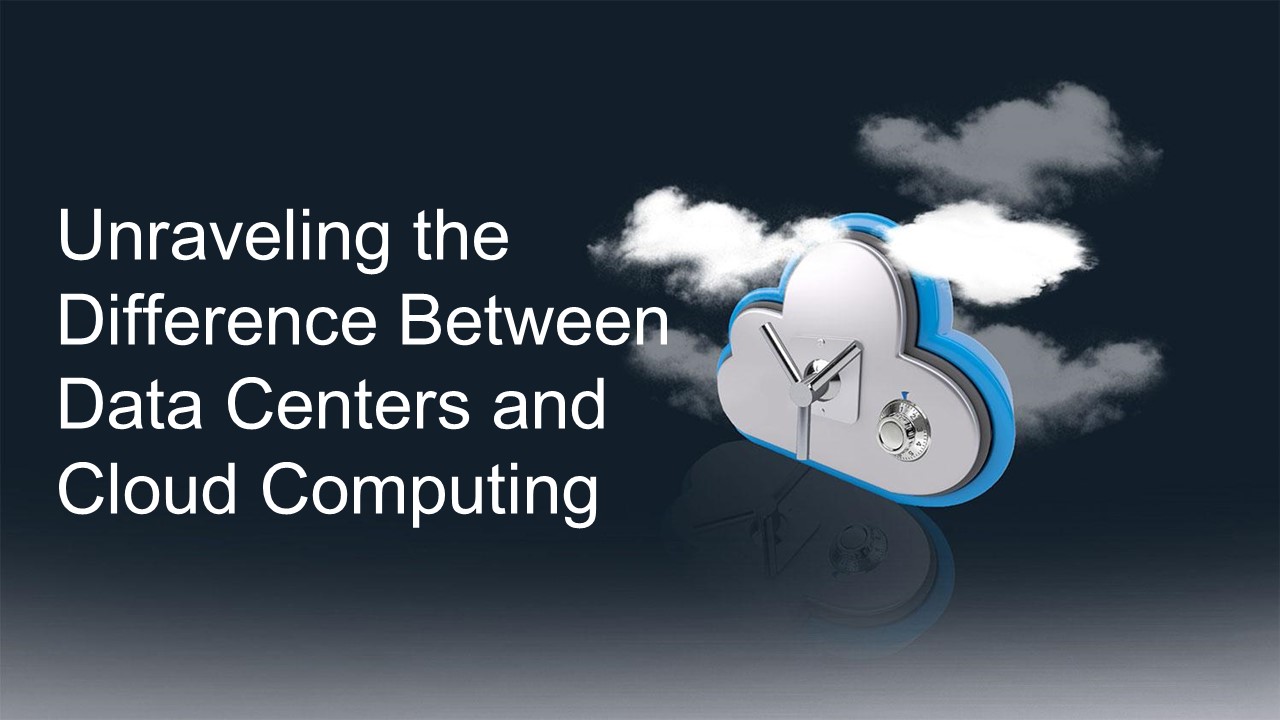Difference Between Data Centers and Cloud Computing - PowerPoint PPT Presentation
Title:
Difference Between Data Centers and Cloud Computing
Description:
The terms cloud computing and data center are not same. Datacenter is a storage setup while cloud computing is the processing infrastructure. – PowerPoint PPT presentation
Number of Views:1
Title: Difference Between Data Centers and Cloud Computing
1
Unraveling the Difference Between Data Centers
and Cloud Computing
2
Introduction
In this blog, we'll delve into the fundamental
difference between a Data Center and Cloud
Computing to shed light on their unique
functionalities and how they contribute to the
efficiency of modern IT systems.
3
Defining the Terms
Data Center
Cloud Computing
- A data center is a centralized facility that
houses computing and networking equipment for the
purpose of processing, storing, managing, and
disseminating large amounts of data. - Essentially, it's a physical location that hosts
servers, storage devices, networking equipment,
and other infrastructure components. - Data centers are the backbone of various
industries, providing the necessary computational
power for applications, databases, and other
critical systems.
- Cloud Computing, on the other hand, is a paradigm
that goes beyond physical infrastructure. - It involves the delivery of computing
servicesincluding servers, storage, databases,
networking, analytics, software, and
intelligenceover the internet. - In essence, instead of relying solely on local
servers or data centers, organizations leverage
the resources provided by cloud service providers.
4
Key Differences
1. Infrastructure Ownership and Management
- Data Center Companies own and manage their own
data centers, investing in hardware, facilities,
and maintenance.
- Cloud Computing Services are provided by
third-party vendors, allowing users to rent
infrastructure and services on a pay-as-you-go
basis, reducing the burden of hardware management.
5
2. Scalability
- Data Center Scalability depends on the capacity
of physical hardware, which may require
substantial time and investment to expand
- Cloud Computing Offers instant scalability with
resources available on-demand, enabling
businesses to adapt quickly to changing
requirements.
6
3. Accessibility
- Cloud Computing Accessible over the internet
from anywhere, promoting remote work and
facilitating global collaboration.
- Data Center Access is typically limited to the
physical location, requiring users to be on-site
or connect through dedicated networks.
7
4. Cost Structure
- Data Center Upfront capital investment in
hardware and infrastructure.
- Cloud Computing Operating expenses based on
usage, allowing for cost optimization and budget
flexibility.
8
Final Say
In essence, while both Data Centers and Cloud
Computing are integral components of modern IT,
they serve different purposes and operate on
distinct models. The choice between them depends
on factors like scalability requirements, budget
considerations, and the level of control desired
by an organization. Understanding the nuances of
these terms is crucial for businesses seeking to
leverage technology efficiently in today's
dynamic digital landscape.
9
Thank You!

